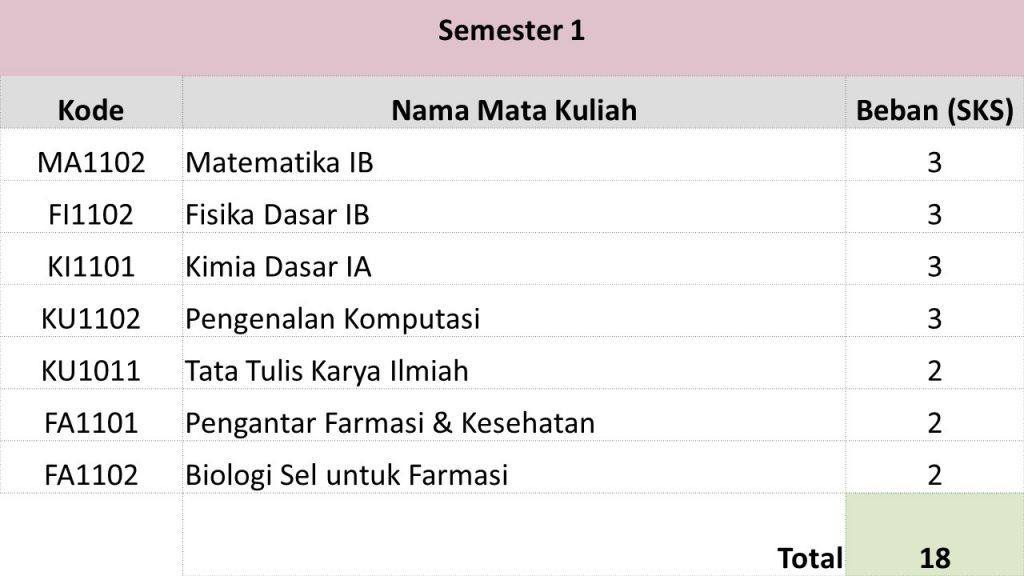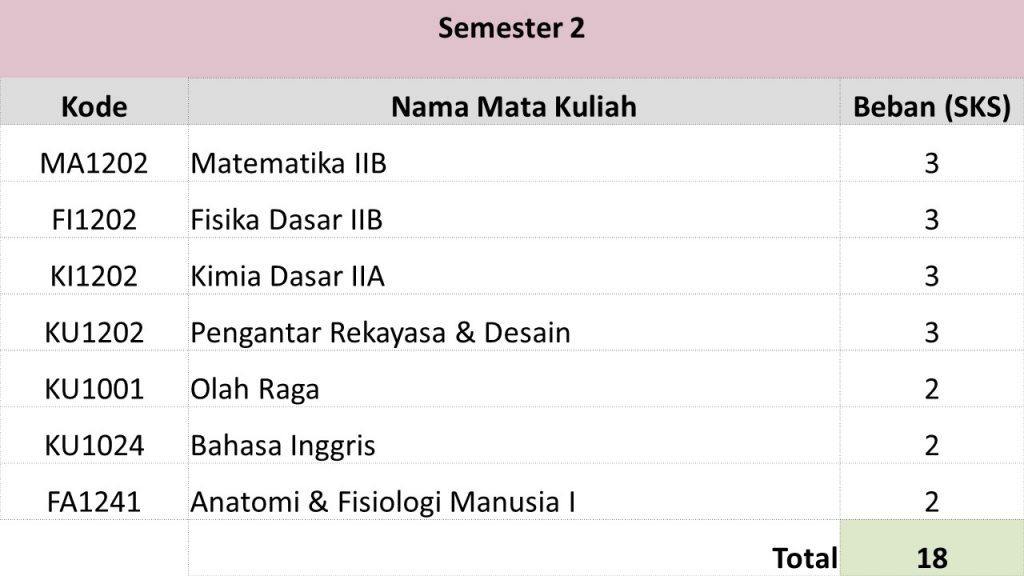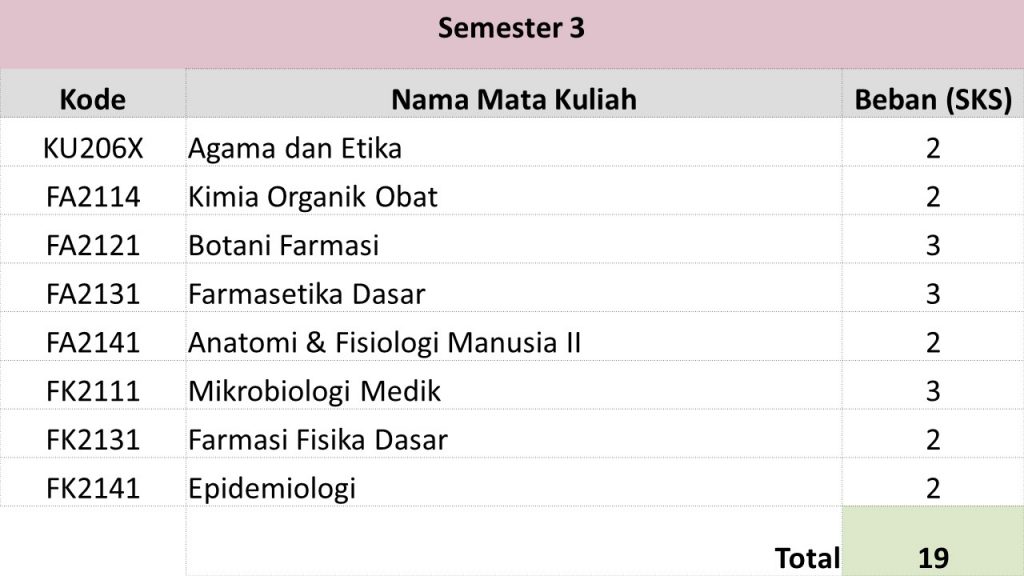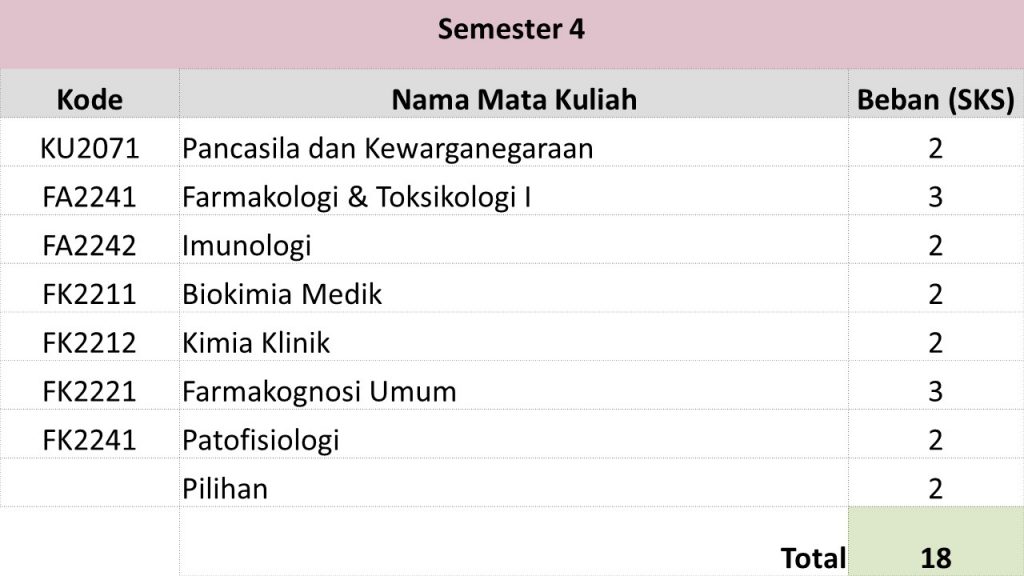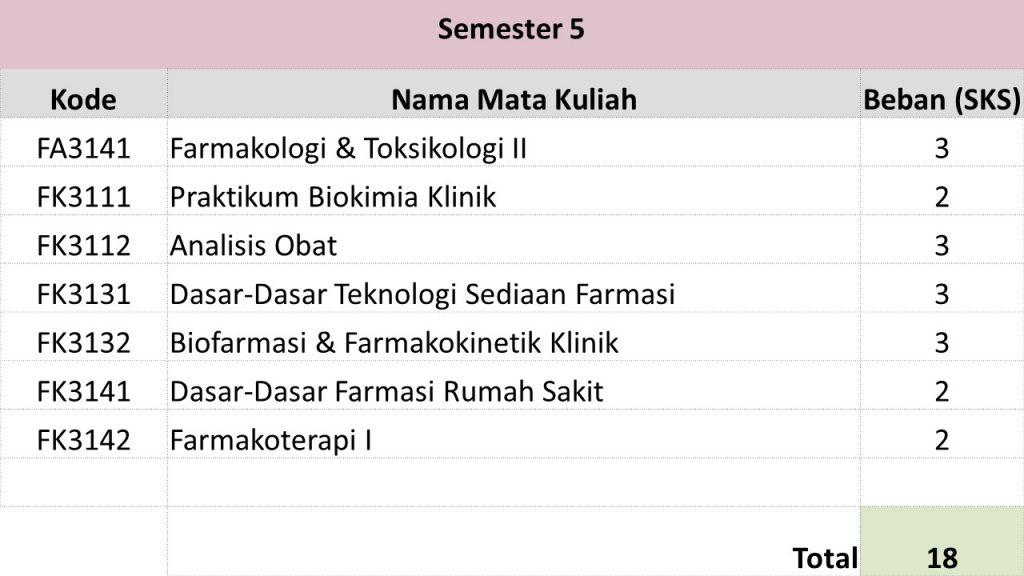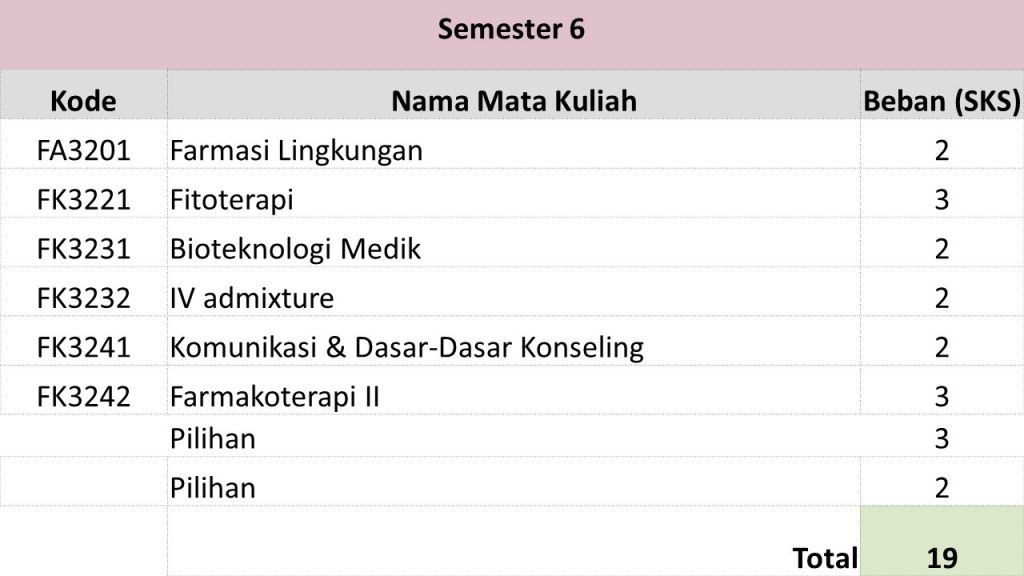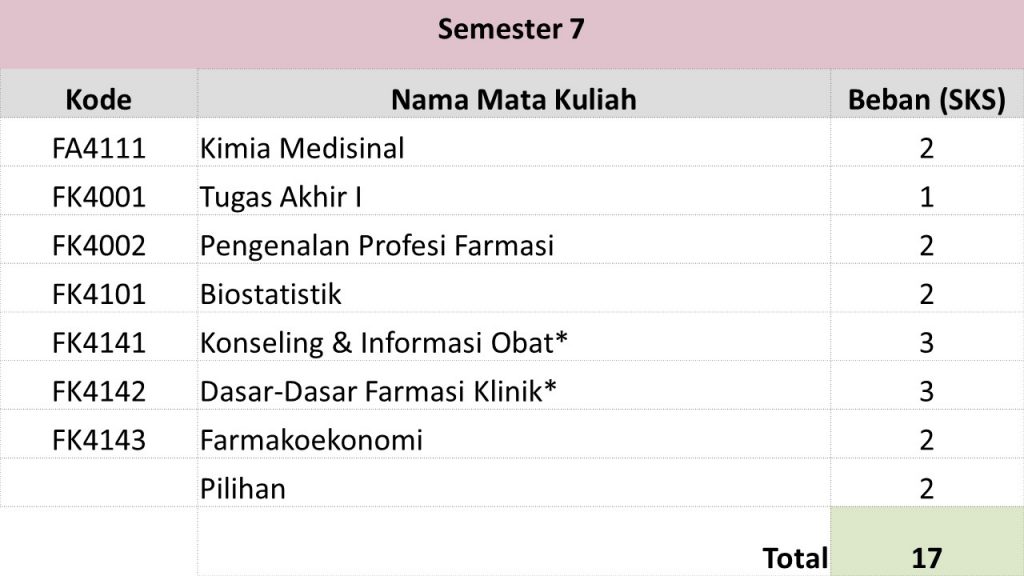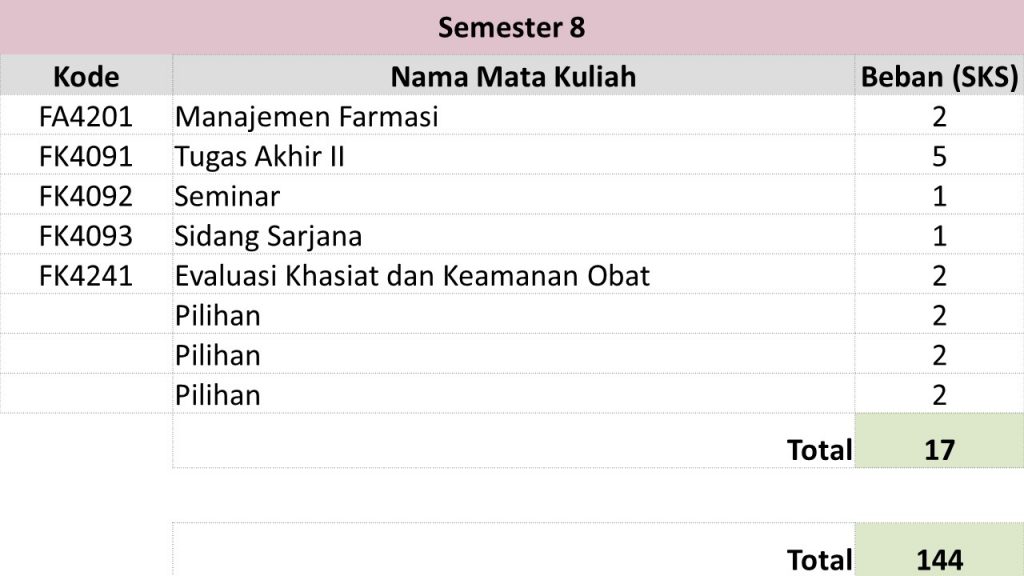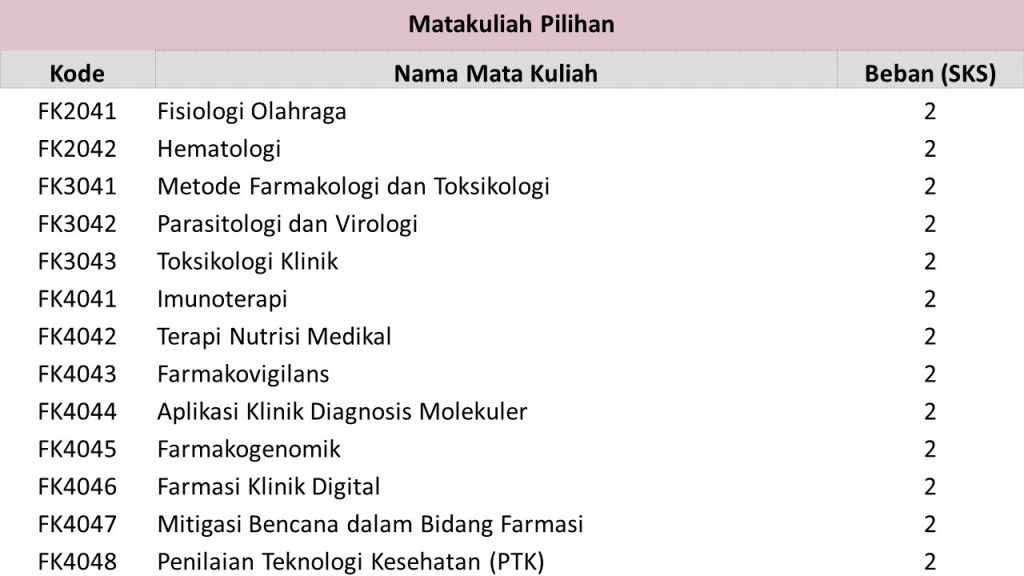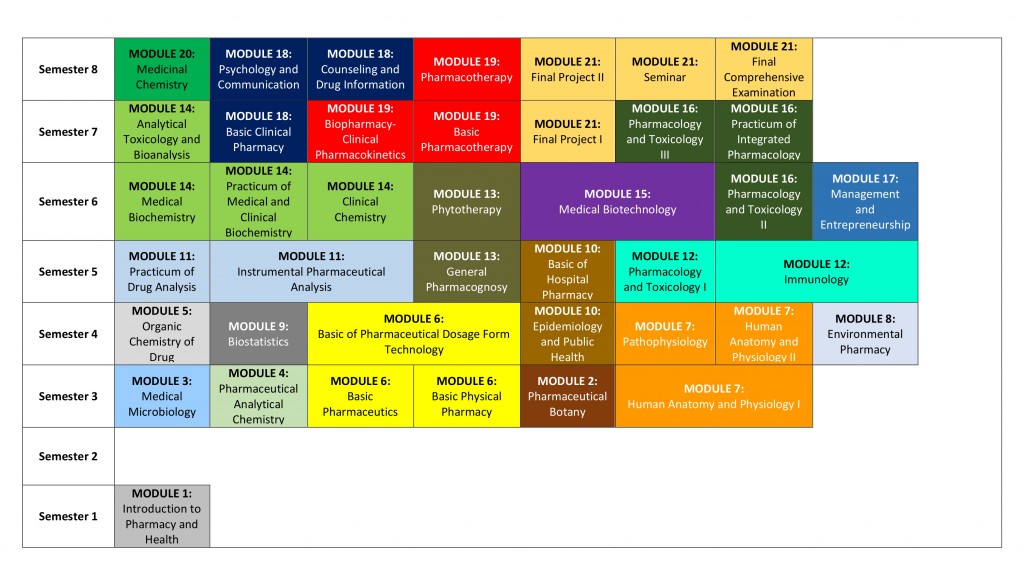Program Studi Farmasi Klinik dan Komunitas didirikan pada tahun 2006 Kurikulum PS FKK difokuskan kepada bidang farmasi pelayanan yang berorientasi pada pasien dengan lulusan terutama bekerja di sektor farmasi yang berbasiis pelayan baik pada setting klinik maupun komunitas.
Program Studi Farmasi Klinik dan Komunitas mengkaji ilmu pengetahuan di bidang farmasi mencakup aspek layanan kefarmasian (pharmaceutical care), implementasi konsep clinical pharmacy dan pengelolaan community pharmacy yang sejalan dengan Paradigma Sehat, mengisi kebutuhan tenaga kesehatan dalam rangka mewujudkan layanan kesehatan oleh tripartit profesi Dokter (medical care). Apoteker (pharmaceutical care). Perawat (nursing care); serta mengenal berbagai produk farmasi dan alat kesehatan yang diarahkan kepada tujuan layanan prima untuk pasien (patient oriented).
VISI & MISI
menjadi penyelenggara program pendidikan sarjana farmasi klinik dan komunitas yang unggul di tingkat regional dan internasional yang berorientasi pada peningkatan derajat kesehatan masyarakat
- Menyelenggarakan pendidikan farmasi klinik dan komunitas yang bermutu tinggi bagi seluruh lapisan masyarakat;
- Memperluas program pendidikan berlandaskan dasar ilmu kefarmasian sehingga lulusan berkemampuan untuk mengisi kebutuhan segala aspek serta peranan dalam kegiatan kefarmasian secara nasional maupun internasional;
- Memperluas dan memperdalam penelitian secara terpadu dalam semua aspek ilmu kefarmasian dalam penemuan bahan obat dan atau aktivitas baru dari suatu obat serta pemanfaatan bahan alam;
- Mengarahkan kontribusinya pada semua program kefarmasian untuk: perkembangan pelayanan kefarmasian yang lebih bermutu kepada masyarakat di rumah sakit, apotek dan tempat pelayanan kefarmasian lain; perkembangan pengaturan kefarmasian yang pada akhirnya dapat mengembangkan pertumbuhan ekonomi untuk mencapai kesejahteraan bangsa;
- Mendukung dan berupaya meningkatkan mutu, dedikasi, dan etos kerja pelaku profesi kefarmasian dalam penghayatan dan penerapan kepedulian farmasi sebagai salah satu misi profesi kefarmasian universal.
LULUSAN
Proses pembelajaran yang dilaksanakan oleh PS FKK diharapkan dapat menghasilkan luaran/lulusan sarjana farmasi yang kreatif, inovatif dalam ilmu pengetahuan, teknologi dan informasi kefarmasian (academic knowledge) didukung oleh kemahiran berkomunikasi (communication skill), kemahiran berpikir (skill of thinking), kemahiran manajerial (management skill) dan kemampuan dalam problem solving serta problem preventing sehingga mempunyai daya saing tinggi dan mampu menembus pasar kerja internasional. Secara spesifik, PS FKK memiliki tujuan: menghasilkan sarjana farmasi klinik dan komunitas yang unggul dan mempunyai daya saing tinggi di bidang profesi farmasi yang berorientasi pada pasien atau masyarakat; menghasilkan luaran penelitian yang dapat dipublikasi dan berkontribusi pada peningkatan efisiensi penggunaan obat; dan berpartisipasi aktif dalam kegiatan pada pengabdian pada masyarakat terutama yang terkait dengan layanan kefarmasian pada masyarakat.
PELUANG KARIR
- Rumah Sakit (Staff/Pemangku Jabatan)
- Puskesmas (Staff/Pemangku Jabatan)
- Bidang Industri Makanan (Owner/Manager)
- Bidang Riset dan Pendidikan (Guru Besar/Profesor, Inovator)
- Bidang Kebijakan, Kementerian Kesehatan, dan Badan Pengawas Obat dan Makanan (Menkes/Ka BPOM/Dirjend/Deputi/Kadis)
- Bidang Industri Kosmetik (Owner/Manager)
- Bidang Distribusi Alat Kesehatan dan Obat-obatan (Owner/Manager)
- Bidang Veteriner (Owner/Manager)
- Digital Farmasi (Owner/Manager)
- Apotek (Pemilik Apotek/Jaringan Apotek)
KURIKULUM
